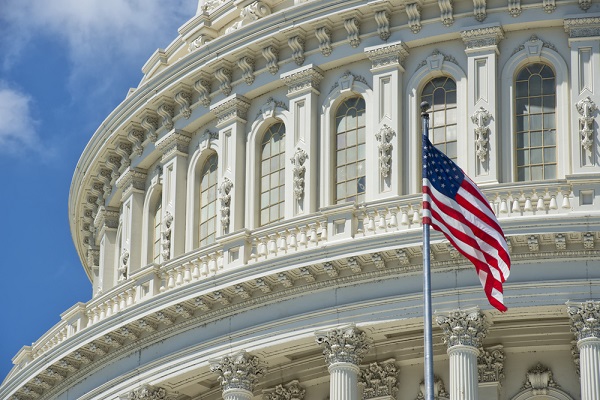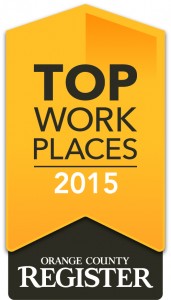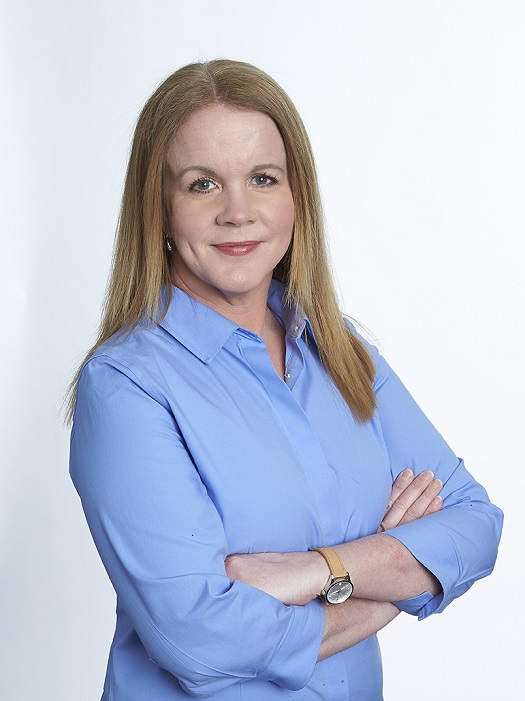News
What’s happening in our industry and what we’re doing

As data breaches become more prevalent, companies must try to stay ahead of the curve and be prepared to respond to any kind of security incident. In an effort to provide a glimpse into what 2016 could bring, Experian Data Breach Resolution released its third annual Data Breach Industry Forecast white paper.

The following interview was conducted by William Vorhies and featured on Data Science Central. Q: What work does a data scientist do and what knowledge do they need? A: 90% of the data in the world has been created in the last two years. Data Scientists retrieve, sift, analyze, process, and store all the data according to business or consumer needs. Simply put, Data Scientists convert the collected and analyzed data into business intelligence. Thus, there are multiple attributes a Data Scientist should have. Not only should they have technical expertise and coding capabilities, but they should also have good intuition and communication skills.

Through Experian’s long-standing partnership with the UCI Paul Merage School of Business, I had the pleasure of participating recently in UCI’s Distinguished Speaker Series. I spoke about the role big data plays in today’s economy, and how data is being used as a force for good. My message to the 300+ attendees was clear – big data is everyone’s business. And it’s only going to get bigger. We have 90% more data today than we had just 2 years ago. What will happen in the next 2 years, much less the next 10? As big data gets bigger, how can we use it in even better ways, as a much greater force for good in society? Where we’re headed In the next decade, I predict that: Every single industry – from food service to entertainment to technology to retail – will be using big data in some way. We’re moving quickly in that direction already. A recent Gartner survey found that three-quarters of companies plan to invest in big data over the next 2 years. We’ll be using big data to cure big diseases. I believe we can fully cure cancer and HIV, among others, if we can tap into new insights from wearable technologies and genetic mapping, and put all that data to good use. Big data will help our economy improve. The presidential candidates may argue about the best way to create jobs and increase wealth, but any way you look at it, big data has to be a part of it. The more we can capture trend data on spending patterns and investment returns, the more we can be smart about where we spend our tax dollars, and even how we manage our personal finances. In other words, big data is going to become the backbone of society in ways we least expect today. Sometime in the future, when you go to a museum or an art gallery, big data will make your experience more personal, more customized, and more relevant to your interests. We’re starting to see hints of this now. Think of how you might receive coupons on your phone for cheaper drinks at the ballpark food counter, because your phone realized you were at the game. “But I think we’re going to take this to an even higher level.” Imagine if we could add virtual reality to your experience – so that, when you walk into an art museum, your phone generates a hologram of your favorite artist. Overall, you’ll be getting a lot more value out of your everyday experiences. Some of the best uses of big data will be in the public sector, an area we’re already achieving significant benefits. Right now, big data is helping to improve public services, transportation and land use. Of particular interest these days, big data is helping to protect public safety in large crowds. And it’s helping people at hospitals figure out how to pay for their care, and pinpointing the most cost-effective payment plans. I think opportunities for big data will continue to expand within the public sector. How we get there But this will only happen if we take the right steps now: We all need to keep learning. This is the message I emphasized with the audience at UCI. No matter where you are in your career, it can only help to sharpen your skills in data and insights analysis. There’s more to discover, every day. Develop policies that encourage data-sharing. We can only benefit from big data if we make it easy for companies and governments to exchange the type of information that will ultimately make our world better. We have a tremendous responsibility to help implement policies that support that goal. Look beyond the obvious. Keep thinking of new sources of data and new applications for it. We’ll all benefit from thinking creatively. That’s the focus we’ve been taking at Experian. One example is our DataLabs, where we are using breakthrough experiments to take risks, so we can do good things with data on behalf of our clients. And we think the world will be better in the long run because of it. Watch these video excerpts from this event: Using Big Data For So Much More How is Big Data Helping Entrepreneurs Big Data Hurdles ### Craig Boundy is the CEO of Experian North America

 In a recent report, the Consumer Financial Protection Bureau (CFPB) estimated that there are more than 45 million American consumers that are “credit invisible,” meaning that they either have no credit history or a credit file too thin to receive access to mainstream credit products.
This limits their ability to get an affordable loan for a car, realize the dream of homeownership or even restricts access to capital to start a small business. More frequently, a lack of credit history forces consumers to turn to more expensive, short term lending options.
While credit invisibles may not have a traditional credit history, many make their cable, utility and mobile phone payments on time. However, this on-time payment data is not being included in their credit file.
In a recent report, the Consumer Financial Protection Bureau (CFPB) estimated that there are more than 45 million American consumers that are “credit invisible,” meaning that they either have no credit history or a credit file too thin to receive access to mainstream credit products.
This limits their ability to get an affordable loan for a car, realize the dream of homeownership or even restricts access to capital to start a small business. More frequently, a lack of credit history forces consumers to turn to more expensive, short term lending options.
While credit invisibles may not have a traditional credit history, many make their cable, utility and mobile phone payments on time. However, this on-time payment data is not being included in their credit file.

 The Orange County Register recently recognized Experian as one of the Top Workplaces among hundreds of leading companies in Orange County for the third year in a row.
In addition, we were recognized for our efforts to make our communities better, earning a separate award as the top large business for Social Responsibility.
This was based on Experian contributing more than 4,000 hours in volunteer time to various charities, including our work with Big Brothers Big Sisters of Orange County, volunteering time at 25 high schools and providing counseling and help at the OC Rescue Mission.
The selection process is based solely on employee feedback gathered from a survey. This methodology is important because it reflects what our employees think of Experian. It shows that we’re more than just a place where people work, rather we’re a community where our team members take pride in contributing.
The Orange County Register recently recognized Experian as one of the Top Workplaces among hundreds of leading companies in Orange County for the third year in a row.
In addition, we were recognized for our efforts to make our communities better, earning a separate award as the top large business for Social Responsibility.
This was based on Experian contributing more than 4,000 hours in volunteer time to various charities, including our work with Big Brothers Big Sisters of Orange County, volunteering time at 25 high schools and providing counseling and help at the OC Rescue Mission.
The selection process is based solely on employee feedback gathered from a survey. This methodology is important because it reflects what our employees think of Experian. It shows that we’re more than just a place where people work, rather we’re a community where our team members take pride in contributing.

 More than 2.5 billion gigabytes of data is generated every single day. By 2020, it’s estimated that 40 zettabytes of data will be created. The sheer amount of data available today is changing nearly every aspect of our business and personal lives.
Big Data is also transforming the world of sports – from the way General Managers recruit and draft players, to how coaches set lineups and design plays and even how everyday fans watch and participate in professional sports. Today, every major professional sports team either has an analytics department or an analytics expert on staff. By 2021, the markets for sports analytics is expected to reach $4.7 billion. This year, nearly 57 million people in the United States and Canada will play fantasy sports.
More than 2.5 billion gigabytes of data is generated every single day. By 2020, it’s estimated that 40 zettabytes of data will be created. The sheer amount of data available today is changing nearly every aspect of our business and personal lives.
Big Data is also transforming the world of sports – from the way General Managers recruit and draft players, to how coaches set lineups and design plays and even how everyday fans watch and participate in professional sports. Today, every major professional sports team either has an analytics department or an analytics expert on staff. By 2021, the markets for sports analytics is expected to reach $4.7 billion. This year, nearly 57 million people in the United States and Canada will play fantasy sports.

 The Movember Foundation launches its first mobile messaging program powered by The Experian Marketing Suite to raise awareness for men’s health.
The Movember Foundation launches its first mobile messaging program powered by The Experian Marketing Suite to raise awareness for men’s health.

 It was only a few months ago when millennials officially surpassed baby boomers to become the largest living generation. Since millennials are so numerous, it stands to reason, that they could also become the most prevalent population of small business owners in the U.S. As a matter of fact, everyday there are hundreds of new start-ups being created by this younger demographic.
It was only a few months ago when millennials officially surpassed baby boomers to become the largest living generation. Since millennials are so numerous, it stands to reason, that they could also become the most prevalent population of small business owners in the U.S. As a matter of fact, everyday there are hundreds of new start-ups being created by this younger demographic.
